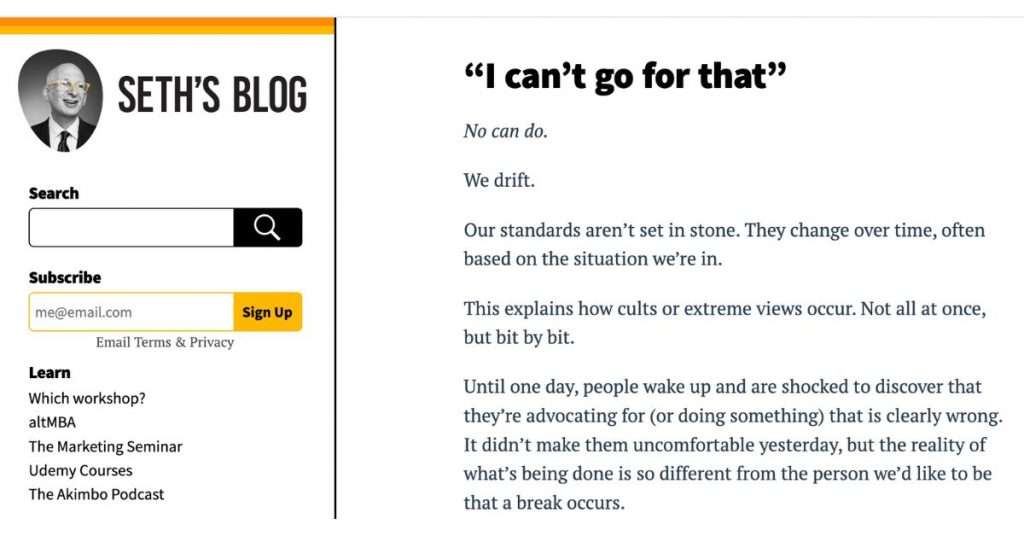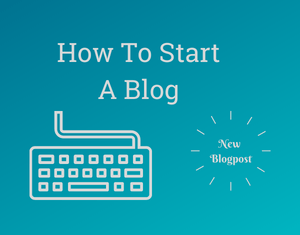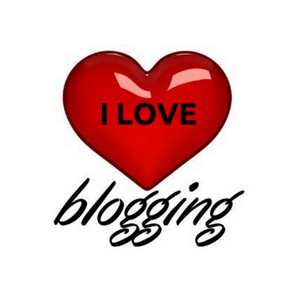
What’s the Difference Between a Blog and a Website
Disclaimer: This post may contain affiliate links, meaning we get a small commission if you purchase through our links. For more information, please visit our Disclaimer Page.
Not everyone understands the difference between a blog and a website, especially if you are a beginner in internet marketing.
If you’re new to the magnificent online world (or maybe you’re not!), you may be making a common vocabulary mistake.
If you use the words website and weblog when talking to someone, you will stumble across one of the most frequently misunderstood word games in modern language.
While the two words may seem to have the same meaning to a beginner, the two words have a whole world of differences between them and, once you know what they are, you will understand why it is so important to do them differently—those two.
Keep reading, and then we’ll go through this short but vital vocabulary lesson together as we discover what’s the difference between a blog and a website. Along the way, we`ll see what blogging is.
Subscribe for MKT Beginner Weekly News
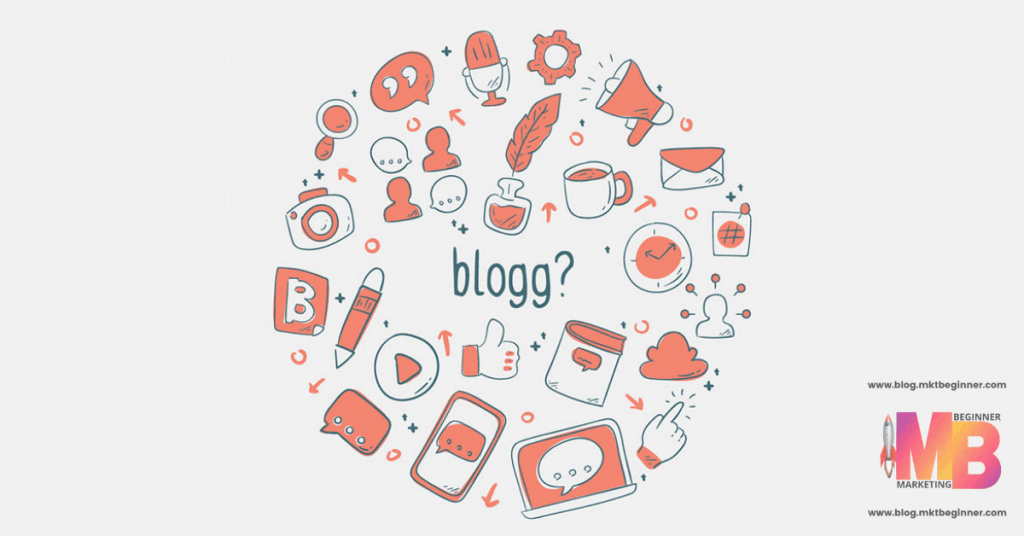
What Is A Blog?
The word blog is taken from “web” and “log”. Blogs are easier to use and allow visitors to find what they are looking for. It helps to exchange ideas, thoughts, news, and much more. The blog theme refers to the look.
The blog owner can choose and use text styles, images, backgrounds, and colors according to their choice to make it more presentable.
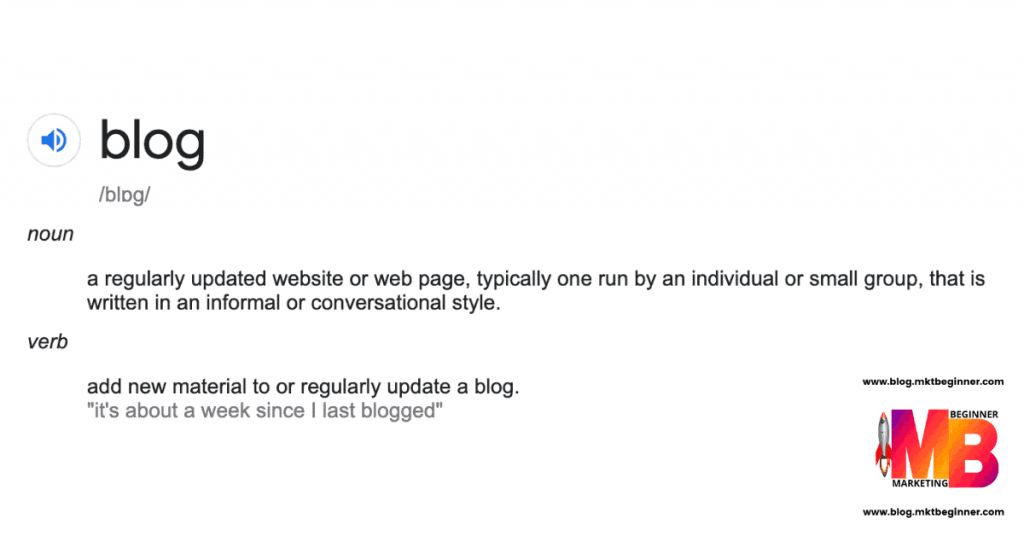
A blog is characterized by the content configured in chronological order. Blogs also include comment fields for each post, and you can search between posts.
Also, you can review the main categories and subcategories. A blog also usually has an option for RSS (Really Simple Syndication), so you can send them to RSS readers.
The verb “to blog” means to write new blog posts or to moderate and respond to comments that have entered the blog.
Wikipedia
A blog consists of four main sections. They are the header, sidebar, footer, and body. The title contains the title and the logo. The sidebars contain widgets, favorites, the most visited content on the blog, recent activity, and social media.
The footer is at the bottom of the blog. This content does not change often. It contains links to static pages, such as About, Contact, etc.
The most crucial area of the blog is the body. This is the main content of the posts. The reason visitors come to the blog is the main content and one of the main differences between blogs and websites.
A typical feature of a blog is that each article has its own comment field, where readers can write comments about the content. Each written comment is part of a topic for discussion with other readers.
As readers can discuss, link to each other’s blogs, and subscribe to new posts, blogs are categorized as social media.
Summing up, a blog is:
- A single part of a website;
- Has a unique URL that is subject to a domain;
- Usually simply structured in itself, but often part of a complex web of pages;
Overall, a blog is an excellent way to share information.
The History Of Blogging
Let’s see what blogging is over time.
The blogging phenomenon started in 1997, when an American published daily updates on a “weblog“, as he called it at the time.
In the past, publishing content on the Internet often required knowledge of HTML editing.
In 1998, the “open diary” became an increasingly used tool. In the spring of 1999, an author turned “weblog” into “weblog” and the word blog quickly became part of everyday speech.

In 1999, the popular blogging platform Blogger.com was launched, which was later acquired by Google in 2003. In the same year, the first version of WordPress appeared.
As the publishing system (the blog platform) takes care of managing user accounts, comments and design, the technical limit for creating a blog has become lower and the phenomenon has grown considerably between 2005 and 2010.
Today, WordPress is the most popular blogging platform globally and works on over 30% of all sites on the Internet.
The mainstream usage when blogs first appeared is to publish review articles such as what you experienced in your daily life and products.
It has the characteristic that you can enjoy blogging and manage it so that you can write articles about what you want to write and what you like.
Speaking of blogs at the beginning of the service, most of them were used as a tool for personal daily life and opinion dissemination, and they were used in a way similar to what we now call Twitter and Instagram.
Types Of Blogs
Blogs can be divided according to topic:
Personal Blogs
Features:
- Personal life experiences;
- Personal events;
- Author opinions:
- Author thoughts;
Qualities:
- Like traditional blogs;
- Like diaries and journals;
- Carries a personal tone;
Themed/Niche Blogs
- May or may not be written in a personal tone;
- Revolve around a specific area of concentration;
- Usually excluding highly unrelated topics;
- Can either be broad or specific;
Corporate/Business/Official Blogs
Written for and about a specific:
- Company;
- Organization;
- Movement;
- Institution;
- Public Figure;
Bloggers write according to the:
- Values;
- Principles;
- Identity of the official owner;
Mixed Blogs
Feature a variety of topics and tones:
I wouldn’t recommend going down this path unless you’re already a popular person or you have a well-formed objective in mind. This happens because it is challenging to create a dedicated readership when you write about various topics.
What Software Is Used To Build A Blog?
A blog may be built using a variety of applications. WordPress.com is the most popular. You may create a blog on WordPress.org or your own account using the WordPress software, which can be readily transferred to any hosting account.
If you establish a blog on WordPress.org, remember that they own the content, not you. When you establish a blog on your own server, the content is entirely under your control. We usually recommend that our clients host WordPress.com on their own server.
There are several ready-to-use layout platforms, like Wix, Tumblr, Weebly, Joomla, Blogger, Typepad, Ghost, and Squarespace, in which it is unnecessary to acquire a domain, as the extension of the platform is used.
Example of a Blog
Seth`s Godin blog is one of the internet’s most famous bloggers.
What Is a Website?
A website is a collection of related websites. They are all identified by a common domain name. Any business, governmental or non-profit organization can create and maintain a website.
When the user visits a website, they first view the website. The visitor can access the desired pages by clicking on the links. The pages of the website are linked via hyperlinks.
A website is not that different from a book. It consists of covers, an index, author information, perhaps some illustrations, and page after page of content. The book, or website, is the sum of all pages.

The website can be related to a book and a webpage can be compared to a single page in that book. This blog post is, for example, a single page from our “book”; a book that we chose to call mktbeginner.com/blog.
The web pages are interconnected by the general theme of the website. They follow a common type of trait, but at the same time, they live their own lives, often much more detailed.
There are several types of websites available on the web across the world. There are business websites that contain information about the company, the products and services they offer, methods of contacting the company, location information, vacancies and other related information.
Other websites are e-commerce sites. They are similar to online stores that sell products and services. Visitors can view the products and make online transactions to purchase the products.
To make things even easier, pages linked to a single website usually have the same domain name (URL or the WWW address that will take you to the website or web page).
Therefore, the domain name www.Websites.com can have multiple web pages starting with the same domain name and ending with different endings to take you to other web pages on the same website.
For example:
- Websites.com/about
- Websites.com/products
- Websites.com/library
- Websites.com/FAQs
- Websites.com/contactus
Each of these web pages is located within a single website.
The History Of Websites
More than twenty years have passed starting from the production of the main site, and it has gone quite far. The primary site, which was text-based and made by CERN, appeared in 1991. As scarcely much was worked at that point, the prominent labels used on the site were the table> labels from HTML.
Nonetheless, with the production of the main web crawler, ALIWEB, and MTV’s most memorable greeting page, the WWW improved consistently. Afterward, more up-to-date renditions of JavaScript for spring-up windows and Glimmer for online movements were delivered. Following that, people began making sites with a more uncommon creative mind.
Amazon, made in 1994, was the first web-based online business site. This event made room for locations with lots of energizing aspects.
Types Of Websites
While a few distinctive highlights make a site perfect, sites are generally ordered by their purpose:
- Business websites;
- E-commerce websites;
- News websites;
- Online portfolio websites;
- Educational websites;
- Web portals;
- Entertainment websites;
- Online Forums;
- Non-profit websites;
- Wikis;
- Job websites;
- Blogs;
- Etc …
Summing up, a website is:
- Everything in a given domain;
- Built from multiple web pages;
- Register for all domain information and topics;
While various sites can contrast extraordinarily in their plan, they all fill a more extensive need: most sites are expected to give data to their guests or main interest groups.
What Software Is Used To Build A Website?
A website can be made entirely “by hand”, with programming and development for the web, but for that you would have to learn to use/program HTML, CSS and JavaScript to create it.
After all What’s The Difference Between a Blog and a Website?
A blog is also a type of website. The difference between a blog and a website is that blogs are regularly updated with new content in reverse chronological order.
Typical sites generally have a more static character, where the content is organized on pages that are not updated as often. The blog is dynamic and can be updated several times a day.
A blog usually has articles that are classified into categories and keywords, while a typical website uses pages to organize and display content.
Blogs can also be part of a larger website. It is increasingly common for companies to have a blog section where they regularly publish content to inform and educate their customers.
It may seem a little confusing, but all blogs can be a website or part of a website, but not all can be called blogs.
1 – The website can be a blog
In the case in which the primary content is articles like it is the Search Engine Journal webpage.
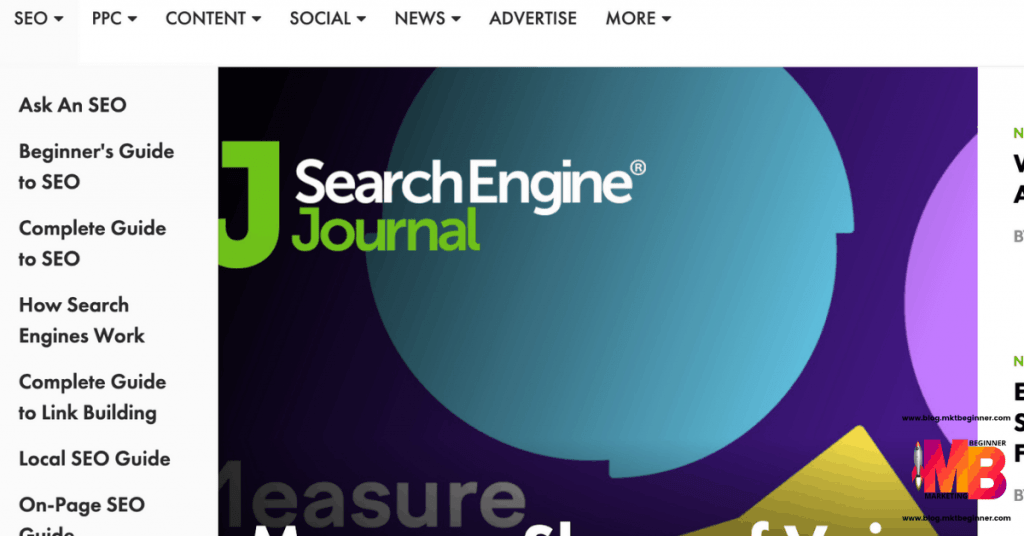
2 – The website has a blog
A typical website, but it has its own blog section for posts about the sector in which it operates, like the Moz website.
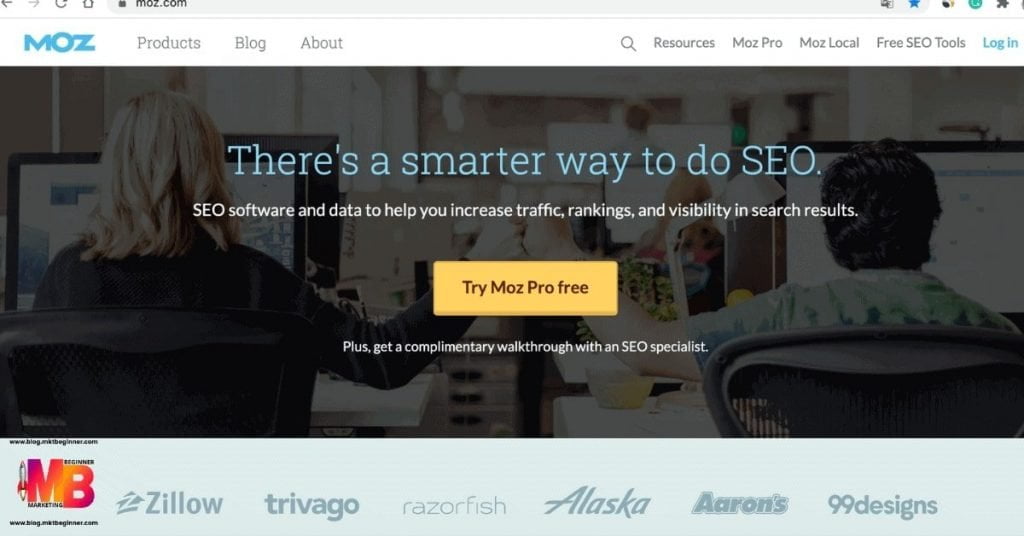
3 – The website is just a website
In this case, the website does not exist as a blog but as a standalone website.
As an example, we have Canva which is a website with no blog that we use to create and edit images.
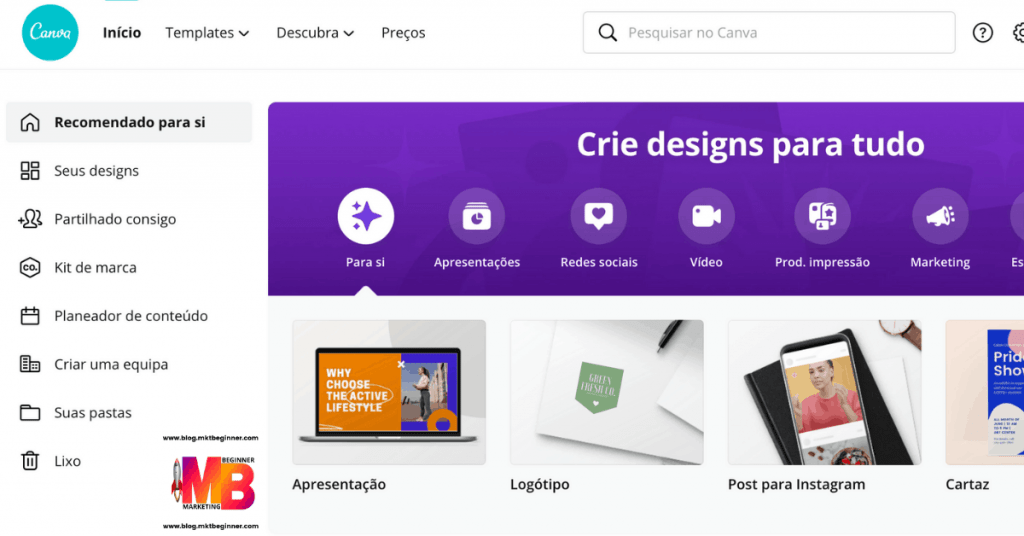
Can Anyone Create A Blog Or Website?
Yes, anyone who wants can start their own blog or website.
Previously, this required someone to have technical skills and knowledge of the program’s code. That is no longer the case.
Today, many tools allow you to easily create a blog or website without the need for prior technical knowledge. We recommend that you use WordPress when starting your blog or website, but of course, there are other options.
Here at MKTbeginner, we publish WordPress guides that even beginners can understand. The idea is to help individuals, organizations, and small and medium businesses with WordPress.
If you need help getting started with WordPress, you can use the comments field below or use our contact form. We answer all questions.
Two Reasons Why Blogs Have Become So Popular
At the time of the advent of blogs, the background was that few tools could quickly disseminate information as they are now.
Anyone can easily get started
Before the advent of blogs, bulletin boards and personal news sites were standard methods of disseminating information.
However, these had to be built by themselves, and the technical hurdles were high. With the advent of a blog service that can be used without building a site by yourself, anyone can send information.
In addition, a service that allows you to post on your mobile phone has also appeared, and it has become more popular as a tool that can be started more easily.
Because it can be started for free
Also, many of these services are available for free, which is one of the reasons why blogging has exploded.
I remember it was a shocking event for people who did not know about the Internet to have a site and send information to the world for free!
Also, because it can be used for free, it goes well with students, and at that time, each person had a blog to post daily events and love affairs and share them with friends.
The popularity of blogs has grown at a stretch because men and women of all ages can easily get started for free!
F.A.Q.
Blogging Is Recommended For Who?
Although it is being used increasingly to earn money, blogging has many skills and experiences that can be gained in addition to earning money.
Therefore, I recommend blogging to you if:
– You want to improve the quality of your primary business and hobbies
– You want to acquire writing skills
– You want to acquire business management know-how
– You want to work on a side business that will be your asset in the long run
– You want to work in a way that is not tied to time or place
– You want to make good use of what you have learned at work
– You want to learn what can be useful at work while earning money
Why Do People Start A Blog?
Blogs are great for sharing ideas and news and can be used for self-expression. They allow interaction through commenting and responding, making them a popular social media platform. The main advantage is the public education and exchange forum, which applies to personal and professional blogs. They can also be lucrative.
What Are The Benefits Of Blogging?
There are many benefits of blogs that cannot be summarized. However, we are trying to digest the help of the blog here. If you want to make a blog, know its benefits well.
1. The most significant advantage of the blog is that you can do this job at home. You don’t have to go anywhere to do it.
2. If you blog, there will be no pressure on you. Usually, when we do a job, we are under pressure somewhere. It’s not like that on blogs.
3. You can make as much money as you want with blogs. Many people earn millions monthly with blogs, but you must work hard. Look at our blog post, where you can read more and learn how to make money with websites and blogs. See what blog vs. website for making money is all about.
4. You don’t even need much investment to do this. You can even start this job for free.
5. There is no risk in doing this job. There is no risk of sinking your money into it. That means there is only profit in this work and no loss.
I am talking about money, of course. You have to put your time and effort into it.
6. You keep making money on this job, even if you leave it (passive income). That is not the case in positions or companies.
How To Start A Blog? How to create a blog?
To start a blog, you must know how to answer these eight questions, which are crucial to begin this process on the right foot:
– What is your goal in starting a blog?
– How much time do you have to dedicate to a blog?
– Am I willing to invest in my blog?
– Which online platform will I use for my blog?
– Which hosting company do I host my blog with?
– What am I going to write about? What is my niche?
– How to choose the perfect blog name?
– In what language will I write?
Once these questions are answered, it’s time to get to work and write, write, write…
A Blog is a space to create content, become an authority, commit to an audience, build an email list, and do business on it.
We have an article that will give you a little push and guide you on this unknown but fascinating path of starting a blog.
Conclusion
To sum up. Did I answer the beginning question: What’s the difference between a blog and a website?
I do think so.
This article discussed the differences between blogs and websites, what types exist, and what they can give to anyone who wants to get their hands dirty, be it as a hobby or see it as a job.
Blogging is one of the best options available to you. If you can do this wisely and consistently, you can make it a career.
See our Credits page to see the sources of origin of some of the images published on MktBeginner.
About the Author
